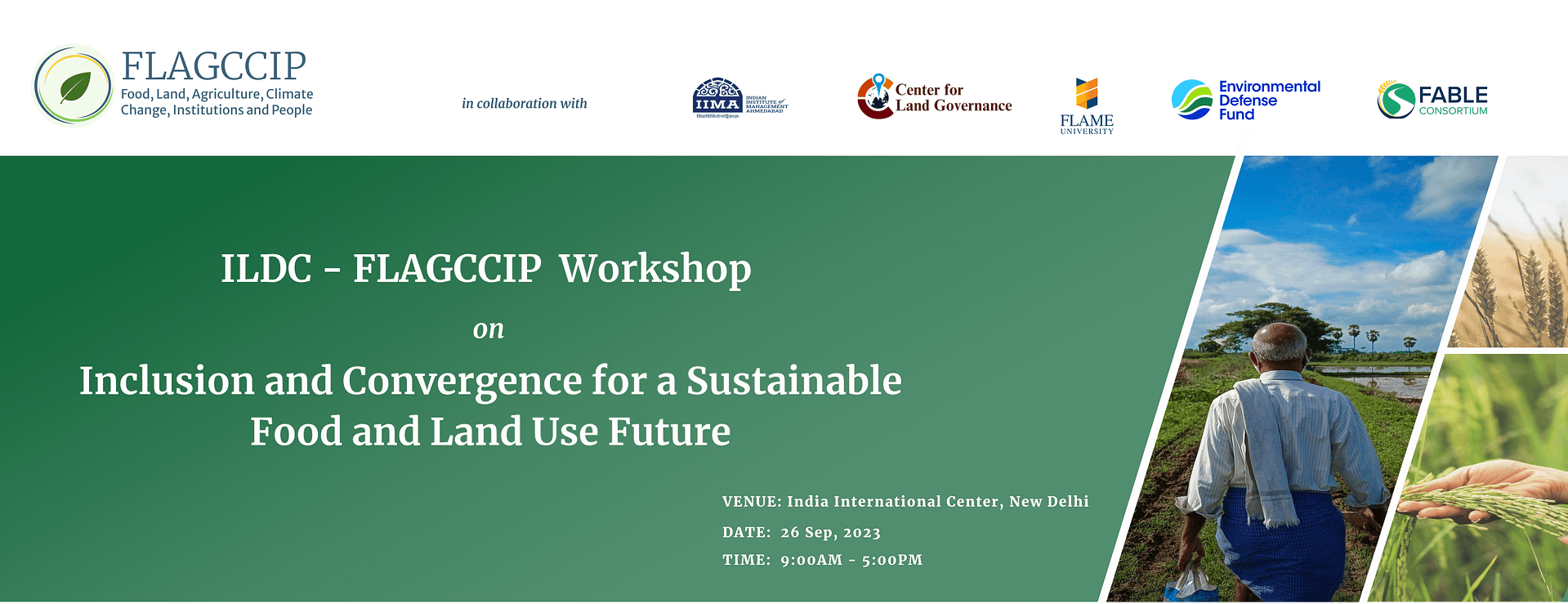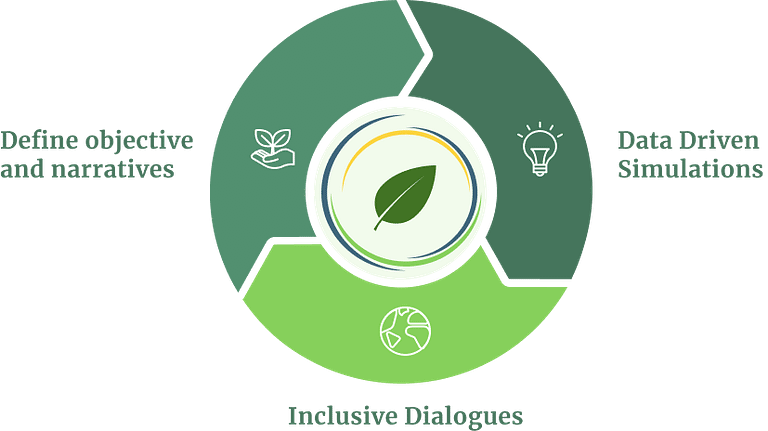Contact Us
Email: flagccipforum2023@gmail.com

The global food system, tasked with feeding an ever-expanding population of 8.1 billion individuals, leaves a significant ecological footprint. The decisions made in this context hold immense implications for the environment, economy, and society at large. The challenges and implications arising from decisions within the global food system are multifaceted. These encompass infrastructure development, land ownership dynamics, and land utilization practices. These issues often result from the decentralized nature of food production, involving numerous producers working within diverse land use systems. These systems are influenced by local biophysical conditions, socio-economic factors, and cultural considerations. In the pursuit of sustainable solutions, the engagement of local stakeholders is paramount. Their deep-rooted understanding of regional nuances, culture, and the needs of their communities plays a pivotal role in crafting effective and sustainable strategies.
FLAGCCIP (Food, Land, Agriculture, Climate Change, Institutions, and People) is an initiative dedicated to fostering sustainable transformation in global agrifood systems through integrated modeling, data synchronization, and inclusive collaboration with local stakeholders. FLAGCCIP’s mission revolves around integrated modeling and data synchronization to develop region-specific pathways deeply rooted in local cultures and settings. These pathways form the foundation for shaping national policies, thereby fostering sustainability.
At the heart of FLAGCCIP’s mission lies a dynamic three-step approach, meticulously designed to pioneer sustainability within agri-food systems. This method blends data-driven precision, inclusive dialogues with stakeholders, and the development of actionable objectives and future narratives.By harmonizing rigorous analysis, diverse perspectives, and strategic goal-setting, FLAGCCIP catalyzes evidence-based transformations that embrace inclusivity and steer the agri-food sector towards a more sustainable and resilient future.

Data Driven Simulations
This involves collecting and analyzing a wide range of statistical data related to the agri-food system. The aim is to gain a deep understanding of the current state of affairs, including aspects such as agricultural practices, emissions, sustainability indicators, and economic factors. These simulations provide a solid foundation by establishing a clear baseline, which is essential for informed decision-making.
Inclusive Dialogues
The second step is centered on fostering inclusive dialogues by actively engaging with a diverse group of stakeholders involved in or impacted by the agri-food system. This includes policymakers, researchers, farmers, entrepreneurs, civil society organizations, and action groups. These dialogues serve as a crucial platform for exchanging ideas, gathering insights, and understanding the real-world challenges and opportunities within the agri-food system. The diversity of perspectives ensures a holistic view of the complex issues at hand.
Defining Objectives and Future Narratives
In the final phase, the insights gathered from data analysis and stakeholder dialogues are used to formulate precise objectives and develop future narratives. These objectives are tailored to specific countries and sub-national regions, taking into account their unique contexts and challenges. The objectives are designed to promote sustainability, reduce emissions, enhance the profitability of farmers, and strengthen the overall resilience of the agri-food system. Each set of objectives is complemented by a distinct future narrative that outlines a compelling vision for a more sustainable and inclusive agri-food system. These narratives serve as guiding beacons, inspiring action and aligning efforts toward a common goal.
Email: flagccipforum2023@gmail.com
